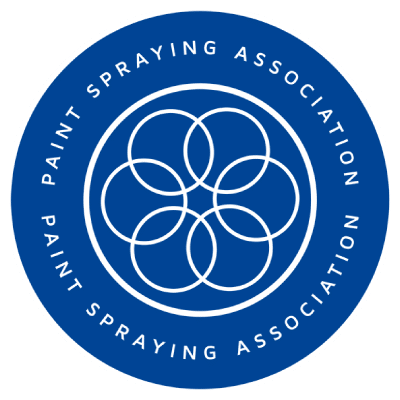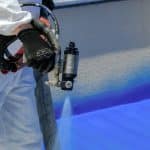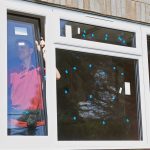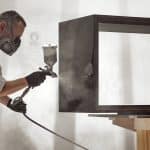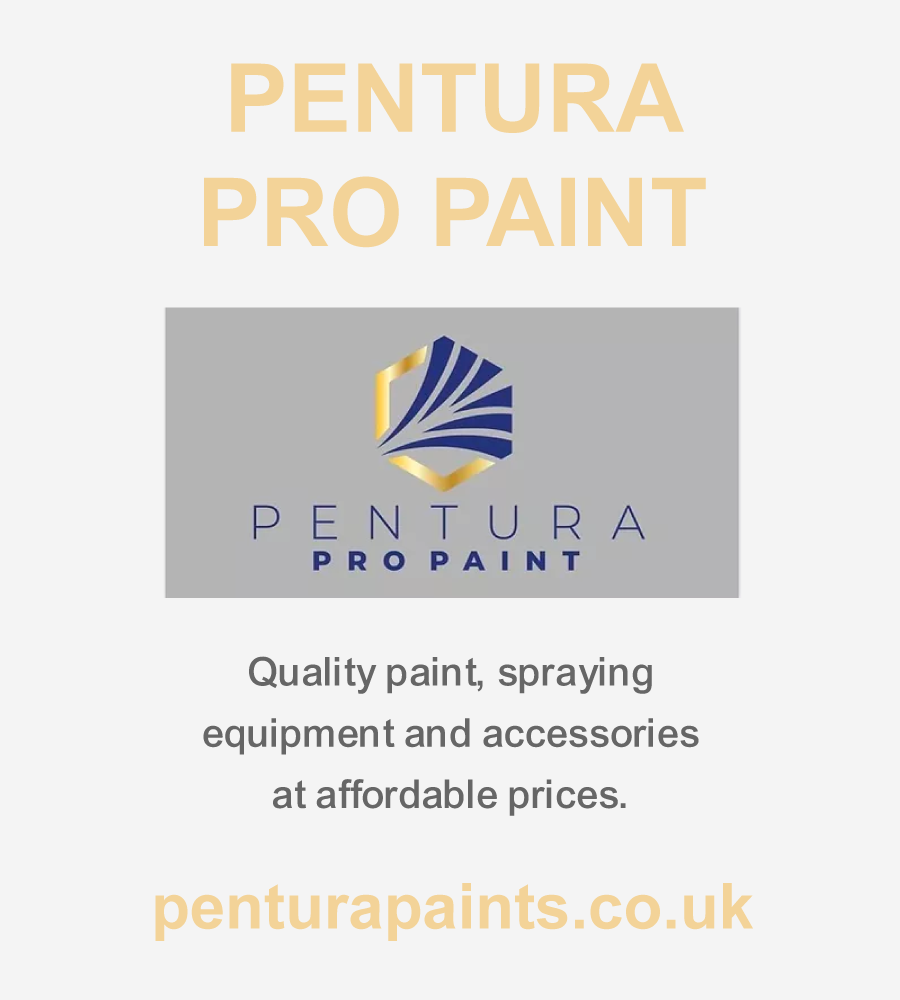Questions to help homeowners and business owners understand the benefits and considerations of spraying UPVC windows
Here’s a comprehensive guide answering each of these questions to help homeowners and business owners understand the benefits and considerations of spraying UPVC windows.
1. Appearance and Aesthetics
- What colour options are available for spraying UPVC windows?
There is a wide variety of colour options available, including popular choices like anthracite grey, sage green, black, and various shades of white. Custom colours can also be mixed to match specific preferences or branding. - Can I choose a custom colour or finish (e.g., matte, gloss, satin)?
Yes, many UPVC spray providers offer custom colour matching and a range of finishes such as matte, satin, and gloss. Satin is particularly popular for a subtle sheen, while matte provides a more contemporary look. - Will the sprayed windows look natural, or will they have a different texture/finish?
When applied correctly, the sprayed finish will look smooth and natural without noticeable texture changes. High-quality application methods result in a professional, factory-like finish. - How well does the paint hold up over time in terms of colour fading, especially under direct sunlight?
Quality paints used for UPVC spraying are designed to be UV-resistant and weatherproof, so they hold up well against fading. However, darker colours may be more prone to slight fading over time if exposed to direct sunlight.
2. Durability and Longevity
- How long will the finish last once the windows are sprayed?
A professionally sprayed UPVC finish can last 10–15 years or more, depending on environmental conditions and maintenance. Regular cleaning with mild soap helps to preserve the finish. - Is spraying UPVC windows as durable as replacing the windows with coloured UPVC?
Spraying can be highly durable if done correctly, though it may not last quite as long as factory-coloured UPVC. However, it’s a cost-effective alternative with a similar aesthetic impact. - How does the paint hold up against harsh weather, such as rain, wind, snow, and UV rays?
High-quality UPVC paints are designed to withstand a variety of weather conditions, including rain, UV rays, and temperature fluctuations. They provide a protective layer that maintains colour and integrity over time. - Will the paint chip, crack, or peel over time, and what kind of maintenance will be required to keep it looking good?
If properly applied, UPVC paint is resistant to chipping and peeling. Minimal maintenance, such as gentle cleaning, is required to keep the finish in top condition.
3. Cost and Value
- How much does spraying UPVC windows cost compared to replacement?
Spraying UPVC windows is typically a fraction of the cost of replacing them. On average, spraying may cost 20-30% of the price of new windows, depending on the size and number of frames. - Is it worth the investment, or would replacing the windows be more cost-effective in the long run?
For cosmetic updates or colour changes, spraying is usually more cost-effective. Replacement might be more suitable if the windows are old or damaged structurally, but spraying is ideal for enhancing appearance. - What’s the potential impact on property value if I opt to spray the windows instead of replacing them?
Spraying UPVC can improve kerb appeal, which is a positive factor in property value. While it may not add as much value as full replacement, it can make the property more visually appealing to buyers.
4. Energy Efficiency
- Will spraying the windows impact their energy efficiency or insulation properties?
No, spraying UPVC is purely cosmetic and doesn’t affect the insulation or energy efficiency of the windows, as it does not interfere with the window seals or glass. - Does the colour of the spray (e.g., darker colours) affect heat retention or cooling in the building?
Darker colours absorb more heat, which can slightly impact indoor temperature if used on large, sun-exposed windows. However, this effect is generally minimal with UPVC frames.
5. Preparation and Process
- What preparation is involved in getting my UPVC windows ready for spraying?
Preparation involves cleaning, sanding, and degreasing the frames to ensure paint adheres smoothly. The windows are also masked to protect glass and surrounding areas. - Will the frames need to be sanded or primed first, and what cleaning/degreasing is necessary?
Yes, sanding and degreasing are essential to remove any grime, oils, or previous finishes. A primer may be used on certain surfaces to ensure even better adhesion and durability. - How long does the entire spraying process take, from preparation to final drying?
The process generally takes one to two days for an average-sized home, depending on the number of windows. This includes drying time, though curing may take up to 24 hours for optimal results. - Do I need to remove or protect items around the windows, such as plants, furnishings, or signage?
Professional spray technicians typically cover surrounding areas with protective sheeting. However, removing or covering nearby valuables is a good precaution.
6. Timing and Convenience
- Is there an ideal time of year to spray UPVC windows for optimal results?
Mild, dry weather conditions are best, as excessive humidity or cold can affect paint application. Spring and autumn are often ideal times. - How long will the windows need to remain undisturbed after spraying for the paint to fully cure?
Paints typically dry to the touch within a few hours, but full curing may take up to 24 hours. Avoid washing or touching windows during this time to ensure the best finish. - Will the spraying process require me to vacate the premises, and if so, for how long?
No, it’s usually not necessary to vacate, as the process is quick and involves low-odour, fast-drying paints. However, you may wish to avoid certain rooms while windows are being sprayed. - How disruptive will the spraying process be for my home or business operations?
Professional spraying is minimally disruptive. Technicians often complete each window in about 30 minutes, with protective sheeting containing overspray and minimising disruption.
7. Environmental and Health Considerations
- Are the paints and solvents used eco-friendly or non-toxic?
Many high-quality UPVC paints are low-VOC (volatile organic compounds), which makes them safer for both the environment and occupants. - Will there be strong odours or fumes during the process, and how are they managed?
Most paints are low-odour, and technicians work with open ventilation. Odours typically dissipate within a few hours after application. - Are there specific health or safety precautions needed for family members, pets, or employees during the spraying process?
No special precautions are usually needed, but keeping pets and small children away from windows during spraying is advisable.
8. Maintenance and Care
- What kind of cleaning or maintenance is required to keep the sprayed windows looking good?
Regular cleaning with mild soap and water is sufficient. Avoid abrasive cleaners or brushes, which could scratch the paint. - Will I need to touch up the paint periodically? If so, how easy is it to do myself or have it redone?
Touch-ups are rarely needed, but if they are, a professional can easily respray specific areas without requiring a full repaint. - Can I use standard window cleaners on sprayed UPVC, or are special products recommended?
Standard non-abrasive window cleaners are fine. Avoid harsh chemicals like bleach, which could dull the finish over time.
9. Weather Resistance and Climate Suitability
- Is spraying UPVC windows suitable for areas with extreme weather conditions?
Yes, quality UPVC paints are designed to withstand various weather conditions. In regions with extreme sun, UV-resistant paints offer added protection. - Does the paint withstand temperature fluctuations, especially in very hot or cold climates?
Yes, UPVC spray paints are flexible and durable enough to expand and contract with temperature changes without cracking. - Will salt air (for coastal properties) or pollution (for urban properties) affect the paint’s durability?
Salt air and pollution can increase wear, but using a premium paint with anti-corrosive properties can mitigate this. Regular cleaning also helps maintain durability.
10. Warranty and Aftercare
- Does the spraying service come with a warranty, and what does it cover?
Many reputable companies offer warranties ranging from 5–10 years, covering issues like peeling or fading due to paint failure, not physical damage. - If there are any issues with the finish, like peeling or fading, will the spraying company provide touch-ups or repairs?
Yes, warranty-covered issues are typically repaired at no additional cost. Some providers also offer maintenance packages for extra protection. - Are there any guarantees regarding how long the finish will last under normal wear and tear?
Under normal conditions, a high-quality spray finish can last over 10 years. This lifespan depends on factors like climate and maintenance.
11. Compatibility with Property Type and Usage
- Is spraying UPVC windows suitable for both residential and commercial properties?
Yes, UPVC spraying is an effective solution for both residential and commercial buildings, enhancing appearance and durability in both settings. - Will the sprayed finish be compatible with existing decor or branding colours on a commercial property?
Custom colours can match any decor or brand scheme, ensuring a cohesive look for business properties. - How does spraying compare to other alternatives like wraps or overlays in terms of aesthetics, durability, and maintenance?
Spraying offers a more natural look and durable finish than wraps or overlays, which can peel over time and require more frequent maintenance.
